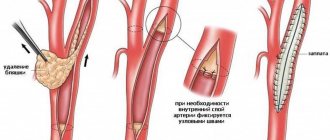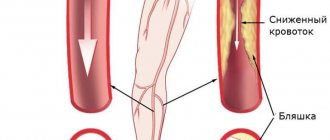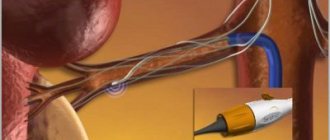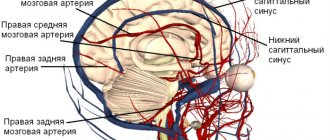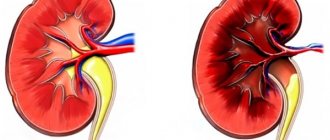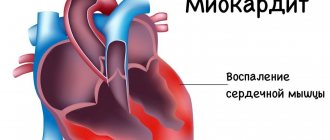Who is susceptible to arterial pathologies?
The risk group for arterial dysfunction includes persons of both sexes with:
- Hereditary predisposition (family history of arterial diseases);
- Disorders of metabolic processes in the body;
- Hypertension;
- Decompensated diabetes mellitus;
- Heart rhythm disorders;
- Tendency to stress and chronic fatigue syndrome;
- Increased levels of cholesterol and lipids in the blood;
- Obesity and pre-obesity;
- Addiction to fast food and other foods with a high concentration of saturated fats;
- Physical inactivity;
- Autoimmune disorders;
- Bad habits (smoking, alcohol abuse);
- Injuries associated with vascular deformation;
- Extensive intense frostbite of the extremities;
- Chronic infectious diseases that provoke thinning of the walls of blood vessels (syphilis, tuberculosis, etc.).
Elderly people are more susceptible to vascular pathologies, but in recent years there has been a tendency to increase the number of young patients with this problem.
Diagnosis of vascular insufficiency
To the extent that the symptoms of vascular insufficiency are not always pronounced, to clarify the diagnosis of the pathology and then select the optimal treatment regimen, the patient will need to undergo several types of examinations. Among them:
- Orthostatic test. Control of pressure in a state of activity, passivity, when changing body position.
- Plethysmography. Necessary for determining vascular tone.
- ECG diagnostics. It is carried out to identify pathologies of the heart muscle in hemodynamics.
- Ultrasound diagnostics of the heart. Allows you to determine the need for treatment of existing heart diseases.
A comprehensive diagnosis will reveal the cause-and-effect relationship between symptoms and characteristics of the disease, which in turn will allow the doctor to choose the right treatment regimen and effective prevention methods in the future.
Prevention
For patients prone to arterial diseases, it is important to monitor their health and adhere to the following preventive measures:
- Control of blood sugar and cholesterol;
- Compensation for diabetes mellitus (if any);
- Timely treatment of related diseases of a provoking nature;
- Normalization and stabilization of optimal body weight;
- Quitting smoking and drinking alcohol;
- Optimization of sleep and wakefulness, improvement of motor activity;
- Rationalization of nutrition and adherence to an anti-sclerotic diet (especially for older people);
- Minimizing stress effects on the body;
- Regular scheduled examinations by specialized specialists.
With minimal suspicion of arterial disease, it is important to immediately consult a doctor for differential diagnosis and adequate therapy.
Treatment of vascular insufficiency
The key treatment for vascular insufficiency over the past few years has been the administration of angiotensin converting enzyme inhibitors. This group of drugs dilates arteries, reduces peripheral vascular resistance, helps restore the function of their inner lining, and facilitates the work of the heart. If symptoms of vascular insufficiency develop against the background of the diagnosis of another pathology, the main treatment should be aimed at eliminating the root cause.
The best prevention of vascular insufficiency is the prevention of diseases that can cause it. It is recommended to monitor the condition of blood vessels, consume less cholesterol, and undergo regular examinations of the circulatory system and heart. In some cases, hypotensive patients are prescribed a prophylactic course of blood pressure-maintaining medications.
In our Medical City Alexandrov, the appointment is conducted by an experienced cardiologist, a high-class specialist who will conduct a comprehensive diagnosis of the disease and prescribe the necessary treatment.
By contacting us, you can be sure of a quality result!
To make an appointment with a specialist and find out all the details, please call: 8 (49244) 9-32-49
Types of disease
According to the distribution of the pathological process, the following types of cardiovascular failure are distinguished:
- Regional – occurs when there is a circulatory disorder in the peripheral vessels.
- Systemic – appears when there is a disturbance in the general blood flow.
Based on the rate of increase in symptoms, the pathology can be acute or chronic. In the first case, its symptoms appear rapidly due to a sharp drop in pressure. The chronic type of condition takes a long time to develop, and its “provoker” is usually a persistent decrease in blood pressure less than 100/60. Chronic failure can be primary (caused by disorders of the autonomic system) and secondary (due to various diseases).
Symptoms of vascular insufficiency
Manifestations of vascular insufficiency depend on the type of insufficiency.
Acute vascular insufficiency
- Collapse – develops with a sharp decrease in blood pressure. It develops suddenly, when within a few seconds a person begins to feel severe weakness, noise in the head, dizziness, and the appearance of a “veil” before the eyes. The man loses consciousness. The patient's skin is pale, cold, breathing is rapid and shallow.
- Fainting – develops with a sudden disruption of cerebral circulation. The patient loses consciousness for several seconds or minutes, followed by darkening of the eyes, ringing in the ears, and severe weakness.
Chronic vascular insufficiency
Has signs of ischemia of organs and tissues, which has not clearly expressed signs:
- Cold extremities
- Blue discoloration of soft tissues in the periphery (fingertips, nose, earlobes)
- Trophic disorders (loss and fragility of hair, nails, loss of turgor and elasticity of the skin)
- Reduced pain and temperature sensitivity
- Weakness in the limbs, especially after exercise
- Muscle wasting
- Fast fatiguability
- Chronic cerebrovascular insufficiency is manifested by frequent headaches, dizziness, clouding of consciousness, decreased memory, attention, and ability to concentrate
- Chronic mesenteric ischemia is manifested by symptoms of dyspepsia (nausea, vomiting), abdominal and epigastric pain
